Calvin considers changes to on-campus residency requirements
In order to increase on-campus housing revenue, Calvin’s administration is considering requiring a third year of residency, closing certain floors or building wings, renovating a dorm building or exploring other methods of renting space to interested students, according to Vice President of Student Life Sarah Visser.
Since the summer of 2018, Calvin College has begun to look at various opportunities to maximize programs and services that generate revenue for the school.
Over the past several years, Calvin has experienced a decline in enrollment numbers which has opened up more spaces in the residence halls on campus. Visser stated that because Calvin’s on-campus living experience is “a key aspect to the formative education that students receive here, we’d love to find ways to extend that opportunity to increasing numbers of students, including those who have traditionally assumed that they would live off-campus in their junior and senior years.”
“While we have not yet landed on a definitive direction, it has been interesting to think about our current model in light of some recent trends related to enrollment, student preferences and the local housing market,” said Visser.
The main question for those on the brainstorming committee is addressing how the empty space on campus from decreasing enrollment numbers can be used creatively. Many other questions have stemmed from the previously listed ideas. Calvin wishes to ensure that these ideas are considered thoughtfully and strategically to serve both current and future students.
Because there is not a concrete plan of action at this point, not much thought has been given to the operational aspect of the ideas generated. Once a more solid idea has been chosen to move forward with, a stronger emphasis will be placed on its implementation on campus.
Before making any final changes to on-campus residency requirements, Visser stated that Calvin will first analyze who will be affected by the changes. They will also be strategic in the transition planning and communication to currently enrolled students at the time the decision is made.
“As with any significant change, we would not want to surprise anyone or create obstacles to student success,” said Visser.
Calvin recognizes that both living on- and off-campus are opportunities and experiences that both students and families value. Living off-campus is an option that the college does not see going away for current and future students.
There has been an increase in the requests of juniors and seniors to live on-campus each year. This factor is also important in the college’s decision when selecting a plan for generating more revenue with the empty spaces on campus.
“Moving forward, we hope to find ways to meet this student need [living on-campus] and to creatively reduce the empty space in our residence halls. We’re eager to continue to explore opportunities to create attractive options for students while also maintaining financial viability for students, families and the college,” said Visser.



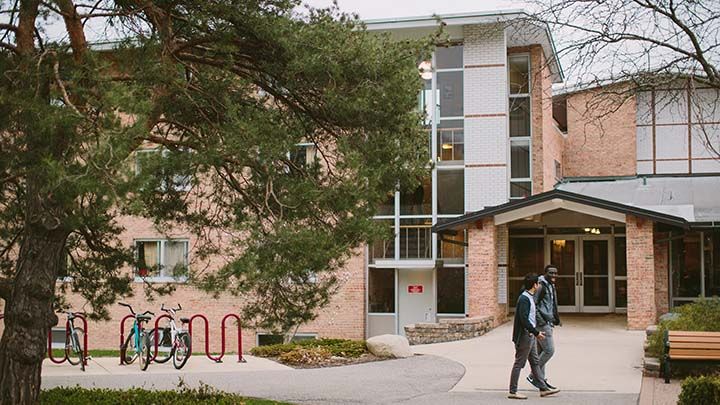
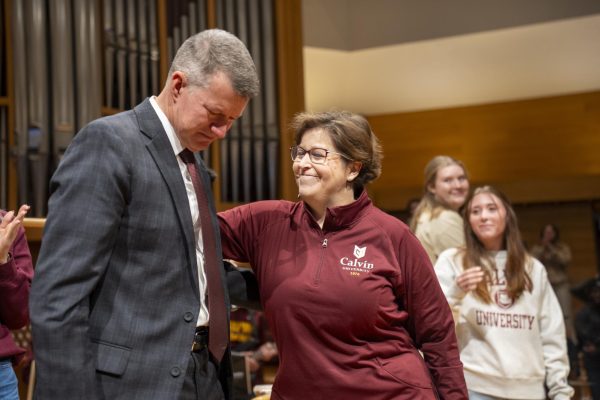
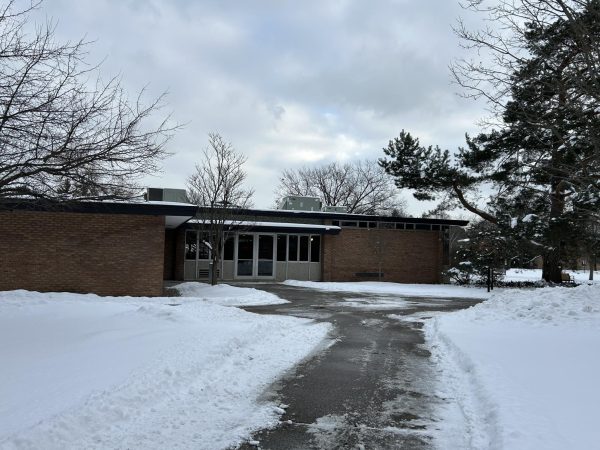
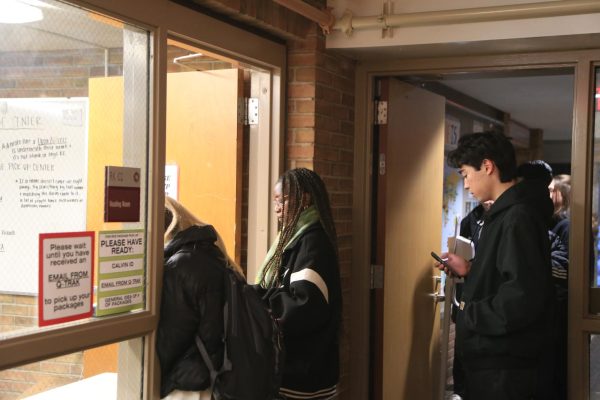


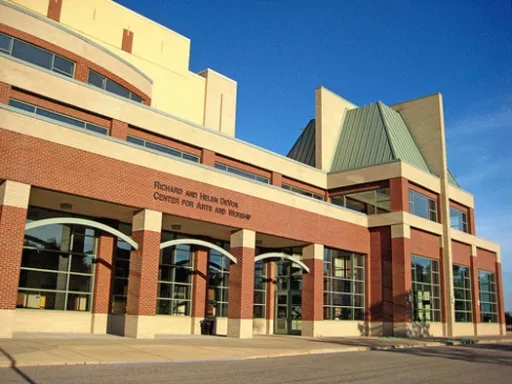
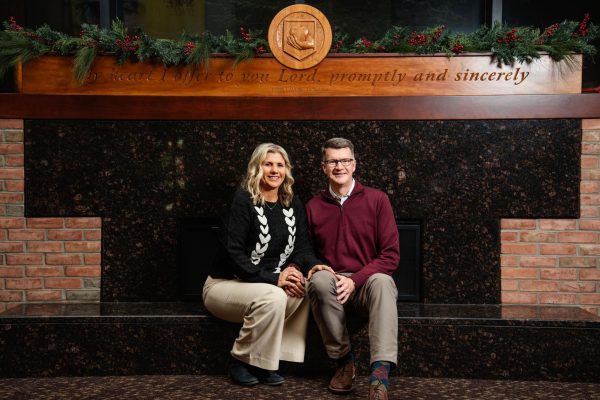


Anon • Dec 12, 2018 at 11:36 am
“There has been an increase in the requests of juniors and seniors to live on-campus each year.” Really? I find this very difficult to believe. If this were true than why would they even have to consider a three year on campus residency requirement. The truth is if you want our enrollment and graduation rate to go to zero, this would be the way to do it. Living in the dorms is expensive as it is. The dorms cost more than a single bed apartment but instead you share a prison cell sized room with another person. Most schools don’t require two years let alone three. In addition to cost, living in the dorms feels like being subjugated by a foreign power, no rights or privacy. If you want people to stay in the dorms you are going to have to make the experience somewhat comparable to living in the real world. Room searches or having an RA come in at their own discretion would have to be not allowed and the room would have to be treated as private property. Also, having a limit on when members of the opposite sex can be over or requiring “two feet on the floor at all times” does not make people want to live in the dorms. I’m not advocating this behavior but I think people should have the freedom to at least live as they please. Want to cut costs? Get rid of unnecessary administrative roles and make the school more attractive to come too.
Also, taking in refugees?!? How would that help? I’m all for Calvin helping the community. It has been doing this for over a hundred years. Come on though people, think. If we do things like that before fixing our own issues we will lose our ability to help others all together. This would make the dorms even less desirable. It’s not because we don’t like helping people or that we don’t like refugees, but this is a school and not a public housing unit. Yes we could do things like feeding the homeless in our cafeteria, but once again this is a school not a soup kitchen. I will say it one last time, this is a school and I don’t think it is unreasonable that the focus should be on school.
Anonymous • Dec 5, 2018 at 10:10 am
Maybe they could make some floors set aside for third years, and lower the cost significantly for third year students that want to live on campus. If they are losing out on money by having vacant space, at least they’d receive some compensation for it without requiring students to live on campus and thus lowering enrollment further.
Natsun Eisen '14 • Dec 4, 2018 at 7:34 pm
Personally, I found that living on campus was not healthy for me. Dorms are active places and it was hard to pull myself away from the activity and get study and sleep accomplished. Living off campus after my first three semesters at Calvin made my college experience much better and also more affordable.
Requiring three years of on campus residence will probably have the opposite of the intended effect. Sure, it may boost college revenues in the short term (by pushing students further into debt), but it will also make Calvin a less attractive school to many and contribute to another drop in enrolment numbers.
Here’s a radical new idea: how about actually asking the question of what educational needs currently exist in today’s economic climate and responding to those, rather than trying to think of ways to gouge current and future students with an even more expensive college experience than what Calvin current costs?
Joseph Kuilema • Nov 30, 2018 at 11:43 am
Sarah mentioned the local housing market, and I think that’s a key consideration here. Some of our students have been poor neighbors: partying hard, not shoveling their walks. Students living in off-campus rental housing can be drivers of gentrification and displacement.
At the same time, Calvin has always affirmed that students can live in off-campus neighborhoods in ways that extend the vision of the College into the city, a vision that looks for ways to act justly and live wholeheartedly. There was an article in last week’s Chimes about the sale of the Ladies Literary Club, I think it would be tragic for Calvin to continue to withdraw it’s footprint from the city.
What might a more radical imagination envision? At Seattle Pacific, for example, the administration allowed an encampment for individuals experiencing homelessness on campus land. What if instead of bringing more students to live on campus for longer, we opened dorms to community members? What if we could be a part of addressing the dearth of affordable housing in Grand Rapids? What might it look like to have refugees, for example, living in our dorms alongside our students instead of across the Beltline in Camelot Woods?